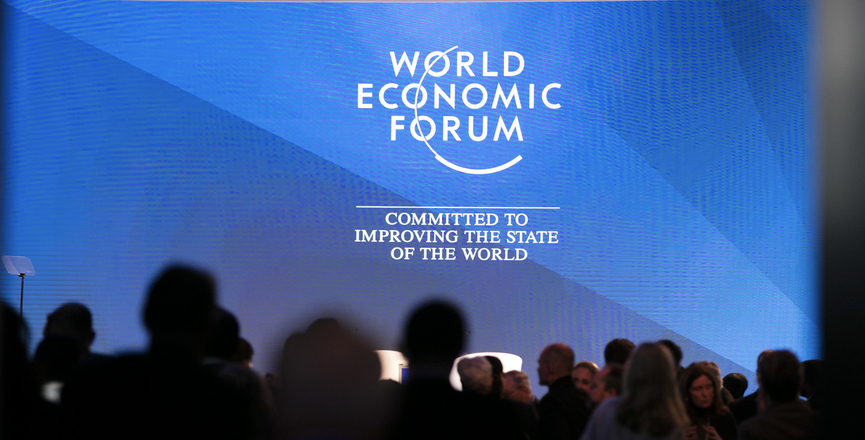The annual conclave of the rich and powerful in Davos, Switzerland, January 21-24 masquerades as a conference.
The World Economic Forum (WEF) is in reality a lobbying opportunity for the corporate elite, who attend because they are looking for special considerations from academic experts, and privileged treatment from powerful government officials, who both imagine they have been invited as panelists. In fact they are merely prey for high powered lobbyists.
Re-election contributions, promises of material support, plus contracts or junkets for corporate enablers in the media and universities are the currency of socializing. Big oil is a prime mover behind the scenes.
To an outsider, the agenda for the billionaire-friendly Davos gathering looks like it was put together by the founders of the civil society-driven World Social Forum, which met from 2001 to 2018. Themes for the WEF discussion include “How to Save the Planet” and “Free to be LGBT.” Climate activist Greta Thunberg is even the headliner this year, pictured above President Donald Trump on the WEF website.
The Oxford Dictionary’s word of the year for 2019 was “climate emergency,” and the WEF has prepared a Global Risks Report 2020 for the “stakeholders” who make up their constituency.
The fossil fuel industry has been making news.
In 2015, International Monetary Fund (IMF) managing director Christine Lagarde (now head of the European Central Bank) released a report estimating subsidies to coal, oil and gas production to be about $5.3 trillion US. In the same year, Lagarde announced the IMF would take “impact on climate change” into account in calculating its World Economic Outlook forecasts, released on the eve of Davos.
Recently BlackRock, the worlds largest money manager — in charge of US$7 trillion in private sector assets — warned of dangers ahead for fossil fuel investors, without, however, committing to a zero-carbon asset portfolio.
Amazingly, the words “fossil fuels,” or their components — coal, oil or gas — were not mentioned in statements from the annual United Nations Conference of the Parties events held since 1995 — including in the Paris Accord of COP21 — despite the fact that two-thirds of green house gas emissions result from the production of fossil fuels.
Successful fossil fuel lobbying has turned the attention of governments to cap and trade, or carbon taxes (or in the case of the International Energy Agency, to “negative emissions” technology) to reduce carbon emissions.
Governments seemingly ignore that such measures are favored by fossil fuel producers, because these measures allow the industry to expand production of coal, oil and gas while pushing the immediate costs on to others — while only paying lip service to climate change.
As Climate Home News explains, fossil fuel producers have from the outset had access to discussions held under the United Nations Framework Convention on Climate Change (UNFCCC).
Obviously business as usual for coal, oil and gas producers is helped along when their activities (mining for coal, and drilling for oil and gas) are never named in climate accords, which was the case until the recent COP25 in Madrid.
Lobbying successes help to explain why we now face a climate emergency. Keeping world economic power in the hands of Davos stakeholders protects the fossil fuel industry, not the climate.
The status quo is not about to be overturned by governments that favor “moderation” and continue to subsidize and authorize fossil fuel production.
In Canada, the culprits include all the provincial governments, plus the federal Liberals.
Doug Ford’s Ontario Conservatives are busy ripping out charging stations for electric vehicles. Jason Kenney has committed $120 million over four years to publicly fund a government climate change denial agency that he calls a “war room.”
According to the Oil and Gas Network, planned investments in new fossil fuel extraction over the next four years total US$1.4 trillion.
Fully 85 per cent of new production will take place in the U.S. and Canada, which should be headline news — except that vigorous corporate lobbying by big oil, and outfits like the Canadian Association of Petroleum Producers (CAPP) bury it.
When major financial, industrial and government players talk about the dangers of climate change, they need to be screened using the climate emergency test. Have they acted to limit the expansion of fossil fuel production directly?
When the answer revealed by the actions of the Davos stakeholders and governments is a resounding no, it is a denial of climate emergency.
Duncan Cameron is president emeritus of rabble.ca and writes a weekly column on politics and current affairs.




